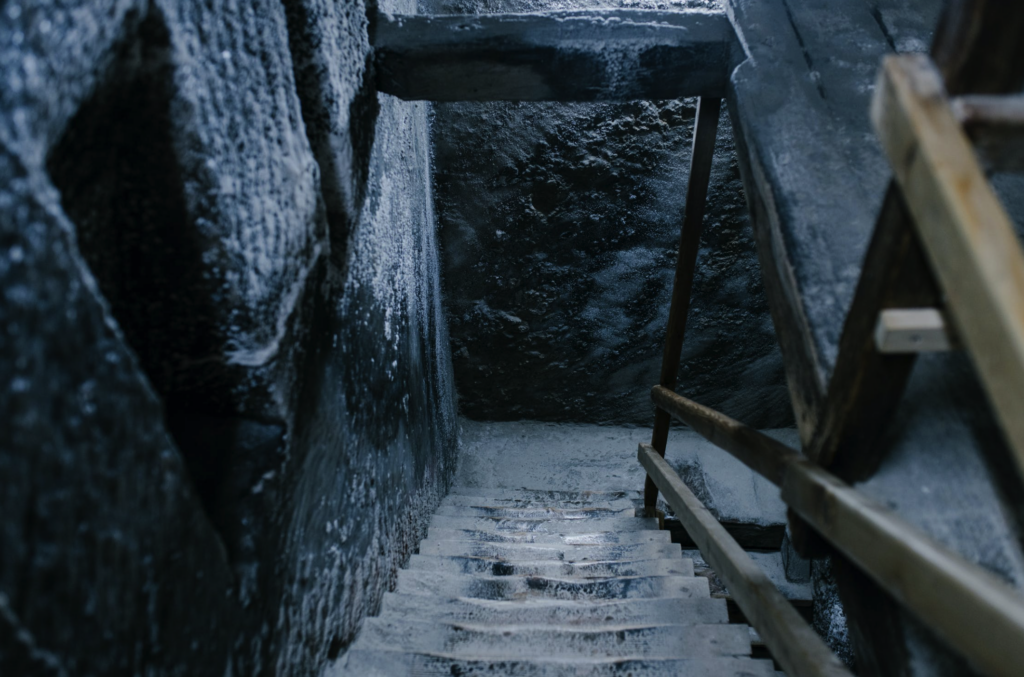

Change is one of those concepts that gets a mixed reaction. Depending on personality and/or age group, change could be welcomed…or greeted with a metaphorical shotgun at the metaphorical door. While change is necessary for all living things to grow and thrive, plants have proven far more open to this notion than people.
I’m betting it’s because plants don’t overthink everything…unless they’re orchids which are high-maintenance and die while writing bad haiku (if they had hands and pen and paper).
Existential plants have a far tougher time, unlike weeds. Weeds just roll with anything that comes their way, and that’s why we can pour concrete over them and it’s no big deal. They simply mumble to the nearby crabgrass, “Hold my beer and watch this!”
*makes crack in new driveway* I’M BAAAAAACK!
All kidding aside, many writers miss the point of a story. Stories are about change, and the more the protagonist (and, to be blunt, all members of the cast) change for good or bad, the better.
Change & Plot
I know what it’s like to have writer brain. We see the world VERY differently than ‘normal’ people. Some see a roll of old carpet at the curb? I’m counting if all family members are present. Just yesterday, I had some fun over on Facebook with this…
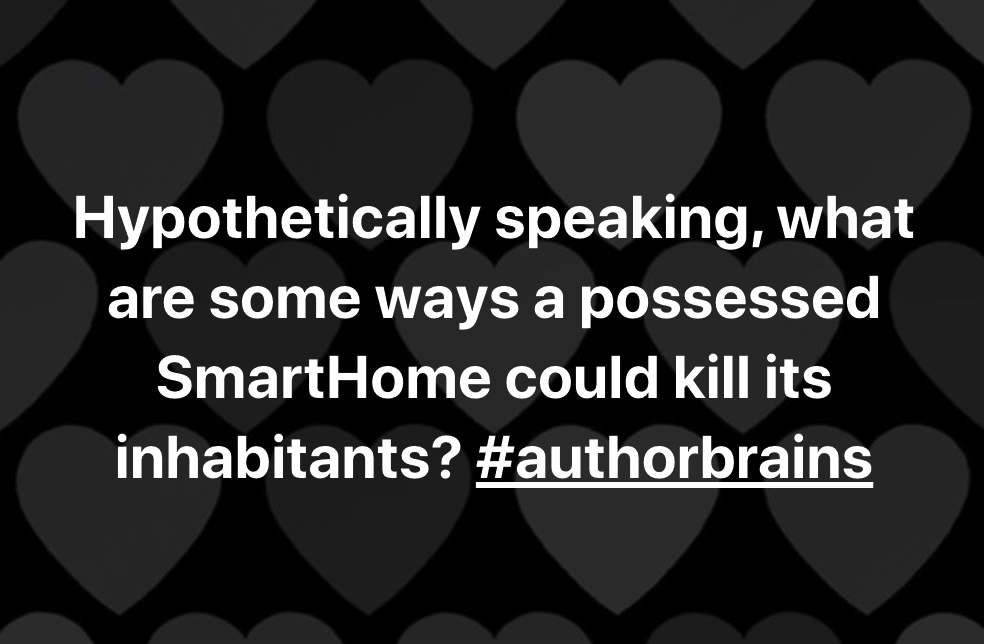

I’m not shocked how many comments this received, nor am I surprised how many of us had already thought this out ahead of time. But, I think this makes my point. Authors (creative people in general) see the ordinary world with a very ‘unique’ set of eyes. We ask the strange, odd, and uncomfortable questions.
This said, while the idea of a possessed SmartHome is cool, it’s only a start. Stories always have to be about people and the ways the story problem forces them to change. Without that? We don’t yet have what we need for a great story.
It’s like having an idea for the world’s greatest chocolate cookies then forgetting to list chocolate in the recipe.
As a writer, I am bombarded with ideas all the time. So many that I often give them away because I’d need more than one lifetime to write them all. While a story idea is a good place to begin, it isn’t a plot. It isn’t yet a STORY.
The story is how a PROBLEM is going to force the MC (main character) to change into a hero by act three.
Uninvited Change
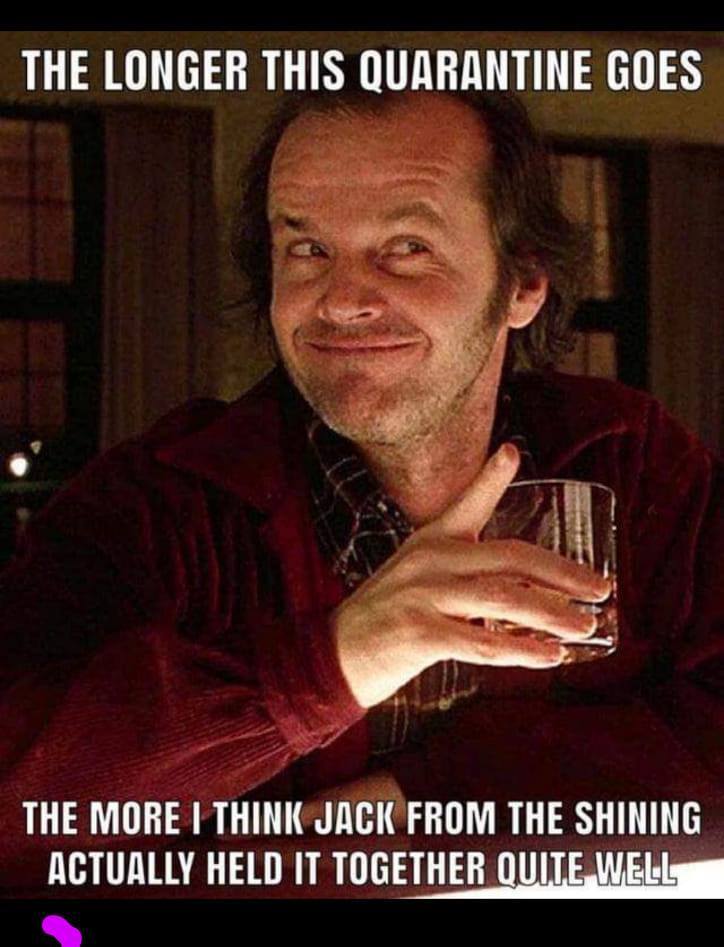

The greater the change, the bigger the payoff at the end when the reader turns the final page. Don’t believe me? Alrighty. My story is about a happily married woman who homeschools perfectly behaved kids and her goal is to have a vegetable garden because she doesn’t appreciate nature enough.
Y’all ready to preorder?
But what if my protagonist, Kristen, BEGINS as this person—happily married to her high school sweetheart, perfectly behaved kids, popular blog about homeschooling, and she simply believes the garden would add a nice touch. They HAVE been cooped up too much since COVID.
***I’m using my name for irony and also we’ll pick on me so as not to hurt anyone’s feelings.
Other than ‘wanting’ a garden, Kristen’s life is perfect. She doesn’t believe she needs or wants change. Everything has a place and life runs with perfect precision.
***Need a moment. Stop giggling. I’m good now. Carrying on…
Now, throw a ROCK in this. Kristen doesn’t believe she needs to change, but what might be her blindspot? Maybe she’s controlling. Perhaps she gets all her worth and value from achievement, but deep down feels like a failure.
Strip away what she takes pride in, and how does she handle it? What if she really is a wonderful wife, mom, teacher, etc., but she’s always longed for adventure but has been so afraid of failing she’s never bothered to try?
Locate the Blindspot
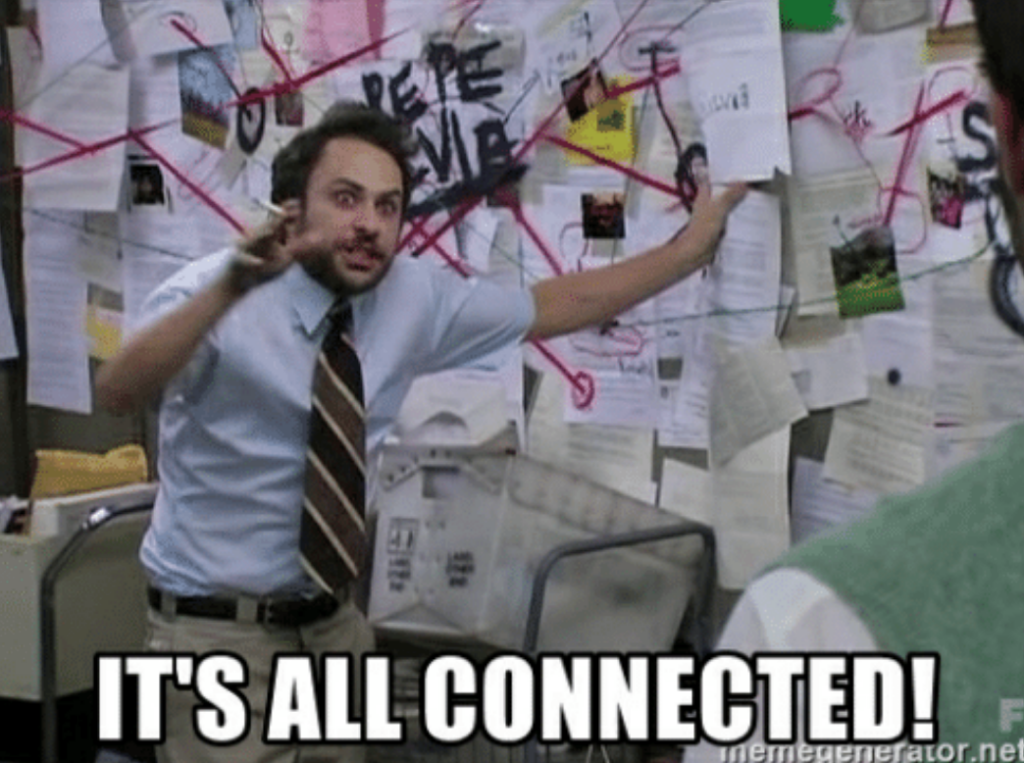

When you find the blindspot, it’s easier to see which uninvited change needs to come crashing into Kristen’s life. For more on this, I recommend a previous post The Johari Window: Understanding & Harnessing the Character Blind Spot.
If she’s controlling, take–no RIP–away her control…and keep on ripping. Make it worse until you make it weird.
She logs on to pay the bills, but all the bank account are empty. Kristen calls the bank and they give her the runaround. Furious and panicked, she tries to call her husband to see if he can fix the problem, but his cell is off.
She calls his work only to find out through a mutual acquaintance who works there that her husband was let go almost six months ago. Kristen, already freaking out, calls a neighbor to watch the kids so she can look for her husband and get some answers.
That is, until she opens the front door and a strange woman in a blue dress greets her on the doorstep. The woman, who introduces herself as Cait, informs Kristen they’re both married to the same man. She produces a folder filled with photos, marriage license, banking records, etc.
What is even worse? Cait isn’t certain they’re the only two wives. She’s managed to find proof he’s married at least three other women over the past fifteen years, but it gets worse.
All three other wives are deceased, their deaths ruled an accident.
This is just an example, but see how Kristen believed she had everything under control, but the inciting incident is a tectonic shift that fundamentally alters her world?
Who she is at the beginning will be a very different person than the woman at the end of the story…and her husband might very well be buried beneath the vegetable garden.
How the story progresses will, again depend on genre.


This could be a mystery-thriller, where Kristen and Cait hunt down a murderous bigamist. THAT will make a heck of a blog post!
But what if Kristen turns to lock the door, only to turn around and Cait and her thick folder of ‘proof’ are gone? All that remains is a giant puddle of muddy water with river reeds on the porch, a pair of garden shears tangled in the detritus.
Now we could shift into supernatural, horror, mystery-thriller with supernatural elements. Y’all get the gist. The point is that Kristen DID NOT WANT to change, but something SO BIG has landed in her life, she might very well be risking her LIFE if she fails to pay heed.
Desired Change
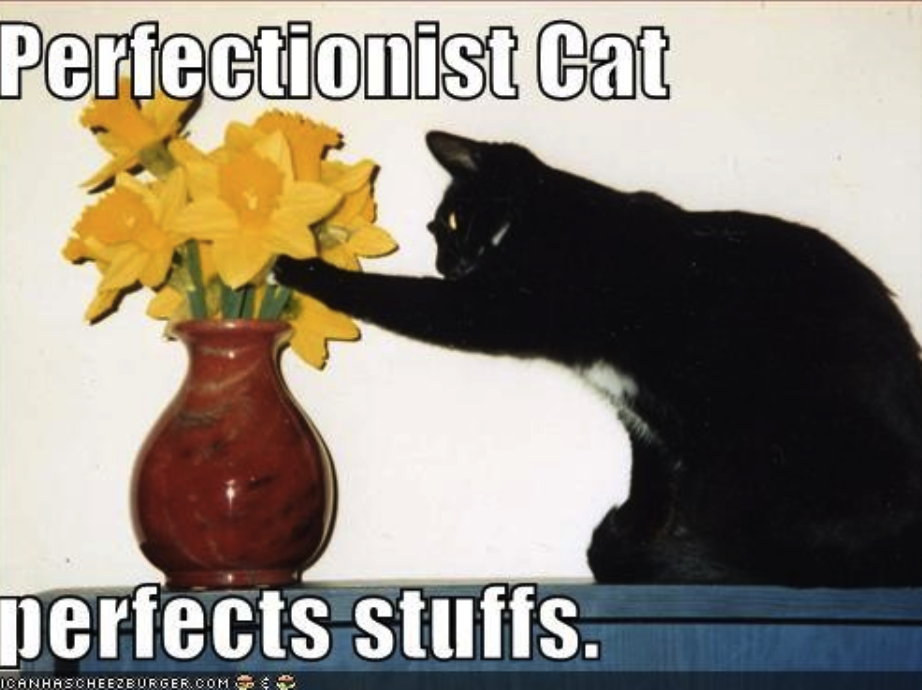

In our above example the protagonist believes life is fine and wouldn’t change a thing (until the story problem FORCES her out of her comfort zone). But what if Kristen wants a change?
Maybe she’s happy enough with her life, but feels as if she’s fallen into a rut. While she might be more open to change, as Author God, DO NOT BE NICE. NICE is for scrapbooking clubs, not for people who build worlds!
You have to break a few lives to make a novel.
Where was I? Yes…
First of all, any potential change should NOT be what SHE believes should change. Ideally, it will be something she’d rather have left well enough alone.
Secondly, the change, again, will have to emanate from the blindspot. The MC will and should resist stepping out of what they know, even if what they know totally sucks. And YES, even when they desire change. The more the MC kicks and screams and makes excuses? The better *evil laugh*
Thirdly, the story problem should cause maximum discomfort for maximum growth. Stories are, fundamentally, about PROBLEMS that DEMAND A SOLUTION. While description, setting, and fancy wordsmithery (yes, it’s a ‘word’) are great, they are not a story.
Stuff Happened…Then More Stuff Happened
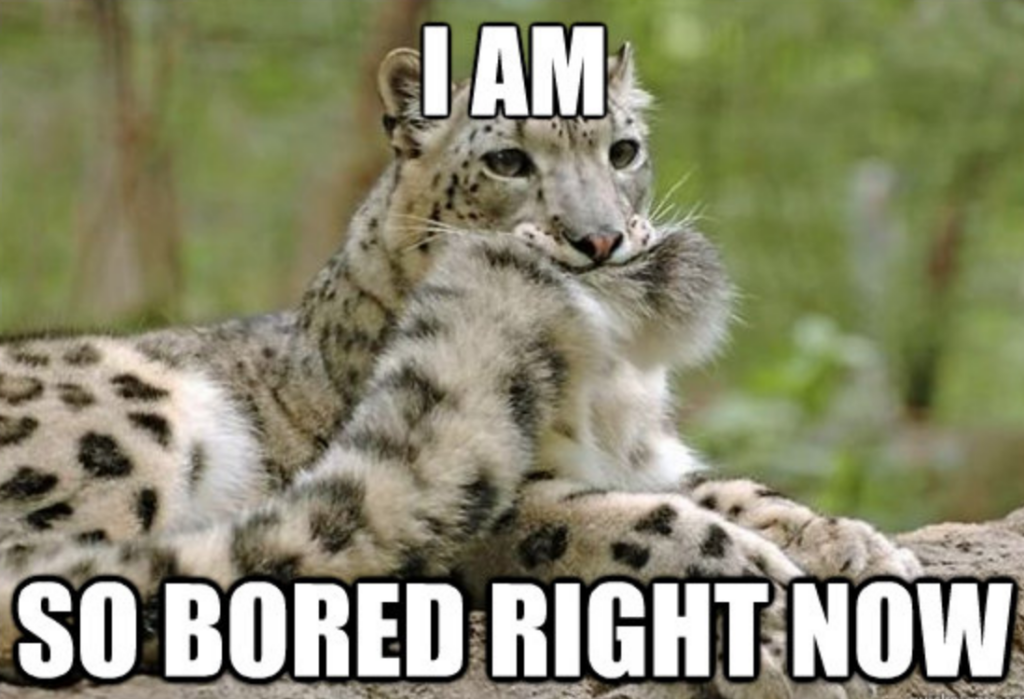

Too many ‘new’ writers fail to appreciate how complicated writing a story actually is. We are creating people, worlds, relationships, situations that have never existed before and never will again all using combinations of 26 letters. More like 23 letters since Q, X, and Z are all but useless most of the time.
Suffice to say that writing great stories is actually extremely difficult, despite what the folks around us like to say. How many people told you they’d write a novel too, but they’d never had enough time.
2020. Mandatory lockdowns. *taps foot* SO! Where are all those novels ‘just as good as J.K. Rowling’s’?
Point made. Moving on…
What writers do is light years from ‘easy,’ and has little to do with time. We don’t find time, we make time, but that’s another gripe blog. As writers, give yourselves permission to be new, to grow and learn and experiment.
Understand the odds of your first novel being a mega-runaway classic are the same as me taking up dancing with venomous snakes while cleaning house (highly unlikely…but feasibly COULD happen, which is why Hubby can’t get life insurance on me 😀 ).
***Do the mambo with your mamba! I’ll stop.
All this aside, most writers miss the point of what story is. It’s more than putting words on the page, more than description. Stories are about bigger, and bigger, then seemingly insurmountable problems until WINNING!
As an editor for over fifteen years, most new manuscripts are simply stuff happening. Characters talking, eating, shopping, more talking, more eating, more shopping. Or if it’s fantasy or science fiction, it’s a world-building dump that reads like Wikipedia with dragons or spaceships.
There might be a wonderful backdrop, lovely prose, incredibly imaginative world, but readers cannot emotionally connect to any of this. It’s why movies have PEOPLE in them, as in more than ONE. Yeah, that’s the CONFLICT part.
Even Castaway would have been a snooze-fest without…WILSON!
*sobs*
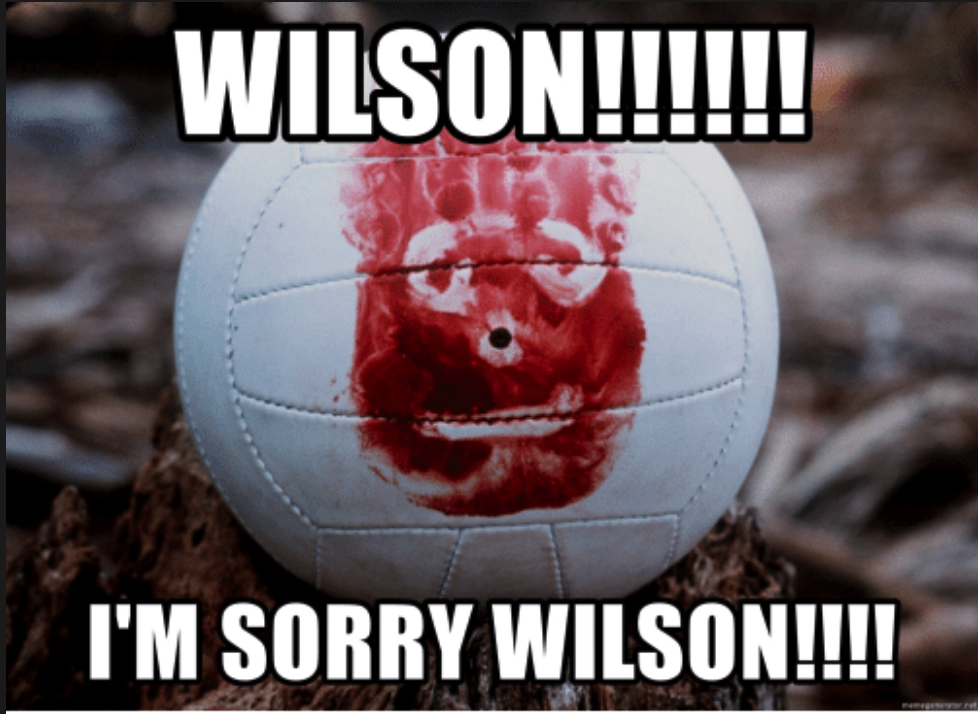

Know what you call a ‘story’ without people? A SCREENSAVER.
What do you call a novel without problems? Filler. Who wants to eavesdrop on a lunch/shopping trip with strangers unless something juicy happens?
Problems & Change
Circling back to where we began, change is always the goal. Change is what makes a story dimensional. Sure, I could write a mystery and have all the elements—a crime, red herrings, the solution—and that’s good enough. But to take the story to the next level, what does solving the mystery COST the person solving it? How does it change him or her?
This runs across all genres, especially when we look at the great works. In Andy Weir’s The Martian, astronaut Mark Watney is abandoned alone on Mars when his crew mistakenly believes him dead during an emergency evacuation. The obvious story problem is to a) stay alive and b) maybe get home to Earth.
But the reason the story has such resonance, despite all the super heavy science, is Watney had always believed himself to be the least valuable member of the team.
He was ‘just’ a botanist.
Yet, it’s the very skills he believed so ancillary that actually help him survive long enough to make it home. Had his expertise been in an area he’d considered ‘more valuable’ before the disaster, he probably wouldn’t have survived.
Watney not only triumphs in the end, but he also grows in confidence and resilience because of the story problem.
Hell House
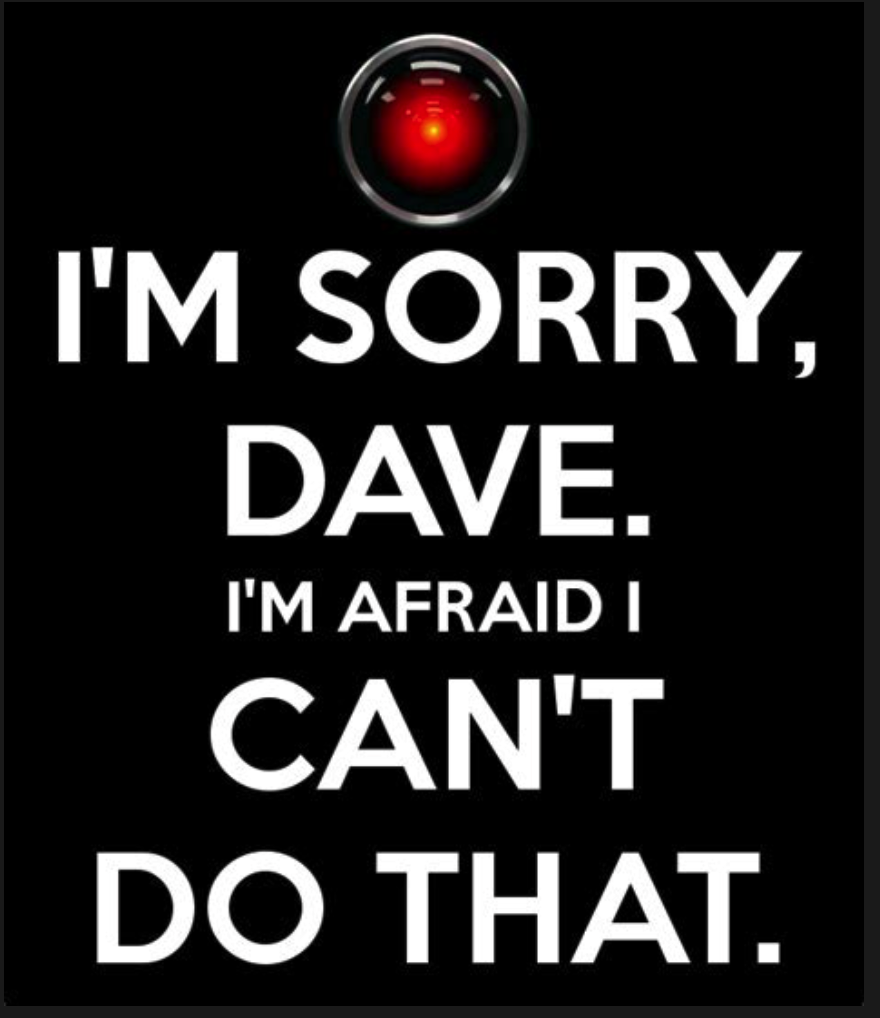

With our possessed/malevolent/malfunctioning SmartHome, it’s a cool idea, but who’s the best candidate for an MC? Sure, we could trap a family in there and ‘have fun’ locking them in the garage while the house drains the water heater and ups the voltage on the wall sockets…but we’re writing novels, not SAW XXIII.
This (above) is a bad situation, not authentic story drama.
Depending on genre, we can have all kinds of fun.
What if the MC, Dave, is a nerdy programmer who designed the SmartHome, then moved in his own family to demonstrate how safe/wonderful it was? He’s filming life in the SmartHome2020 and streaming their experience on-line to sell his idea to investors. Once he does? He can retire before 40.
Little does Dave know that his business partners have double-crossed him and infected the home’s system with a virus. His partners never intended anyone to get hurt, only for the house to malfunction enough to make Dave the fool on-line. Then, they could force him out, pay him pennies, repackage and rebrand his idea and sell it for millions.
Meanwhile…
OPEN THE POD BAY DOORS, HAL!
Dave never stopped to realize how much he took his wife and kids for granted. It isn’t until his dream home becomes a hell house, that he has to change or DIE. The problem forces Dave to grow from nerdy programmer to dish-disposal-fighting-warrior, and that is when his REAL priorities (and TRUE enemies) come into sharp relief. He also discovers what he’s made of, as well as what he’s willing to fight and maybe even die to protect.
Ultimately, Dave’s blindspot vanishes. He realizes that he fixated so much on his dream he was too trusting, not only of humans (never underestimate greed) but technology, too. Handing away autonomy for convenience might be nice, but could also come with higher price than we want to pay.
***Btw, um Netflix, Amazon? If y’all like this story, call me. I am for sale 😀 .
Questions to Ask
Whenever we come up with a story idea, make sure to flesh it out. Other than the ‘cool idea’ what problem could it create? Who could suffer the most? Change the most? How? Who’s the best candidate for the MC? What is that person’s blind spot? Once you know that, can you tweak the problem to force the MC into facing that weakness and then making them overcome their darkest selves in order to succeed?
What are Your Thoughts? I LOVE Hearing from You!
Does this help crystallize what might be making a current story flag? Maybe you have some cool ideas that have been running around your head and didn’t quite know how to take that next step? Thoughts? Questions?
Want to make up your own Hell House story? Hey, it’s Friday. Have a little creative fun.
